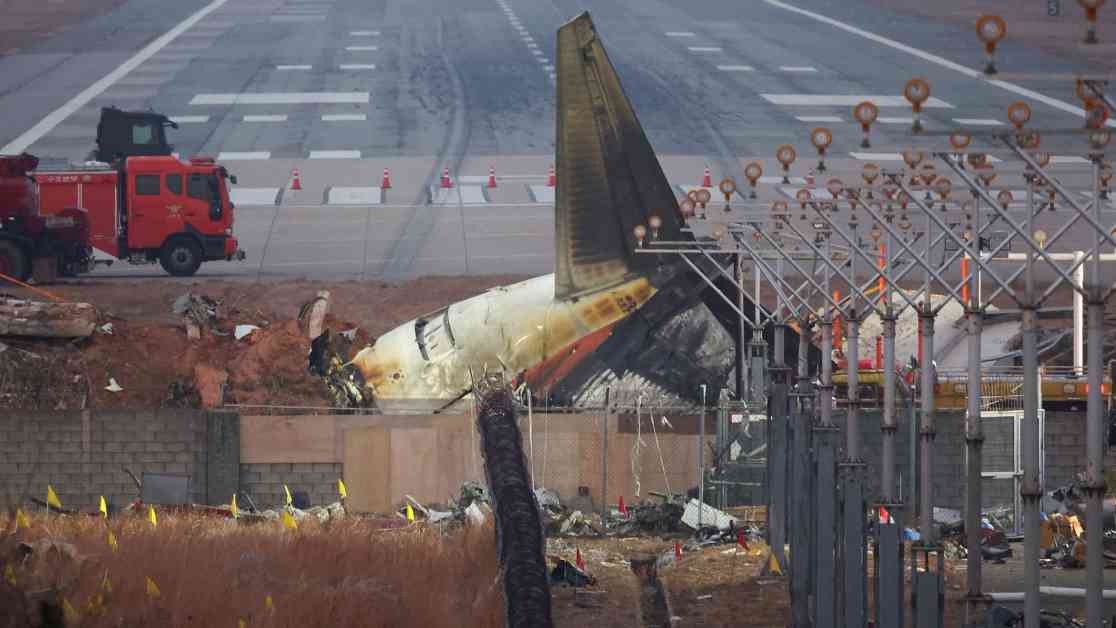Jeju Air Crash Sparks Boeing Shares Drop
In a tragic turn of events, a deadly crash involving a Jeju Air Co. Flight 2216 at Muan International Airport in South Korea has sent shockwaves through the aviation industry. The incident, which claimed the lives of 179 out of 181 passengers on board, has prompted South Korea to order an emergency inspection of all 737-800 planes operated by domestic carriers, leading to a significant drop in Boeing shares.
Acting President Choi Sang-mok has directed the Transport Ministry to conduct a thorough safety inspection of the country’s airline operation system. Officials at the Ministry of Land, Infrastructure, and Transport (MOLIT) have announced plans for a comprehensive special inspection of the B737-800 model, the same type of aircraft involved in the tragic crash.
Uncertainty Surrounds Crash Circumstances
The exact circumstances of the crash remain uncertain, with reports indicating that the plane landed without the correct gear deployed, skidded off the runway, and crashed into a wall before bursting into flames. The survivors, two crew members, were miraculously pulled from the wreckage.
During a briefing, MOLIT officials revealed that the aircraft’s pilot had mentioned a possible “bird strike” shortly after receiving a bird activity warning from the control tower. The pilot also declared a “Mayday” while attempting to abort the landing, raising questions about the events leading up to the tragic incident.
International Investigation Underway
Two black boxes from the aircraft have been recovered and sent for analysis, while a team of U.S. investigators, led by the National Transportation Safety Board, is collaborating with South Korea’s Aviation and Railway Accident Investigation Board to unravel the circumstances of the crash. Engine manufacturer CFM International will also be involved in the investigation process.
MOLIT officials have vowed to review the concrete wall that the aircraft hit and conduct a thorough inspection of all B737-800 planes to ensure compliance with safety regulations. The Boeing 737-800 model, widely used by South Korean low-cost carriers, has come under scrutiny following the tragic crash.
Reassurances Amid Tragedy
In the wake of the crash, Jeju Air has extended its support to the victims’ families and assured the public that the aircraft was covered by a $1 billion insurance policy. The airline has denied any mechanical faults or safety lapses playing a role in the incident, emphasizing the importance of maintaining aircraft safety standards.
As authorities continue to investigate the crash, questions linger about the safety of the Boeing 737-800 model and the measures in place to prevent similar tragedies in the future. With shares of Jeju Air hitting an all-time low and Boeing facing scrutiny, the aviation industry is grappling with the aftermath of this devastating event.




















